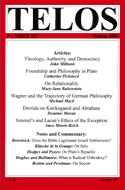Hamid Dabashi’s critique—or more accurately, his attack—on Hegel in the article “War on Gaza: How Hegel’s Racist Philosophy Informs European Zionism” represents an emerging trend in certain intellectual circles: dismissing European philosophy as fundamentally racist while advancing exclusionary regional ideologies, often excluding nations like Kurds and Jews by denying their identities and national aspirations. While Dabashi ostensibly raises valid concerns about colonialism and Eurocentrism, his interpretation—or more accurately, his misinterpretation—of Hegel is selective, reductive, and deeply entangled with a postcolonial hostility to the radical Enlightenment tradition embodied by thinkers such as Spinoza, Kant, and Hegel.
Drawing on the more nuanced readings of scholars like Susan Buck-Morss (who is misrepresented by Dabashi in the same article), Shlomo Avineri, and Domenico Losurdo, this response argues that Dabashi distorts Hegel’s philosophy and, in doing so, perpetuates the ideological prejudices embodied by pan-Iranism, pan-Arabism, pan-Turkism, and Islamism. Furthermore, I will explore why Hegel’s thought, as a philosophy of emancipation, holds critical significance for the self-determination of historically oppressed nations, particularly the Jews and Kurds. I begin by discussing how Dabashi misrepresents Hegel’s philosophy to advance his own chauvinistic and antisemitic agenda, while also indirectly exposing his fear toward Hegel as a thinker whose ideas could support both Kurds and Jews in their pursuit of statehood and nationality. Dabashi, an Iranian-American professor of Iranian Studies and Comparative Literature at Columbia University, frequently writes about topics such as Palestine, Israel, Kurdistan, and Iran, consistently intertwining them with Iranian nationalist chauvinism, antisemitism, and antikurdism, all disguised under the facade of progressive leftist ideas—a facade that must be unmasked.
 Michael Mack’s “Richard Wagner and the Trajectory of Transcendental Philosophy” explores the differing brands of anti-Semitism in Kant, Hegel, Feuerbach, and Schopenhauer, and explains how their scrutiny of Jews as a hindrance to society was radicalized by Richard Wagner. Mack details how each philosopher’s particular form of anti-Semitism fed into Wagner’s social-political writings as well as his “total works of art.” By investigating the concepts put forth by Wagner’s philosophical predecessors, one can more fully understand how a radicalized version of Kantian moral philosophy infiltrated German national culture through the composer’s art. Mack specifically addresses how these ideas manifested in Wagner’s Ring Cycle.
Michael Mack’s “Richard Wagner and the Trajectory of Transcendental Philosophy” explores the differing brands of anti-Semitism in Kant, Hegel, Feuerbach, and Schopenhauer, and explains how their scrutiny of Jews as a hindrance to society was radicalized by Richard Wagner. Mack details how each philosopher’s particular form of anti-Semitism fed into Wagner’s social-political writings as well as his “total works of art.” By investigating the concepts put forth by Wagner’s philosophical predecessors, one can more fully understand how a radicalized version of Kantian moral philosophy infiltrated German national culture through the composer’s art. Mack specifically addresses how these ideas manifested in Wagner’s Ring Cycle. 

